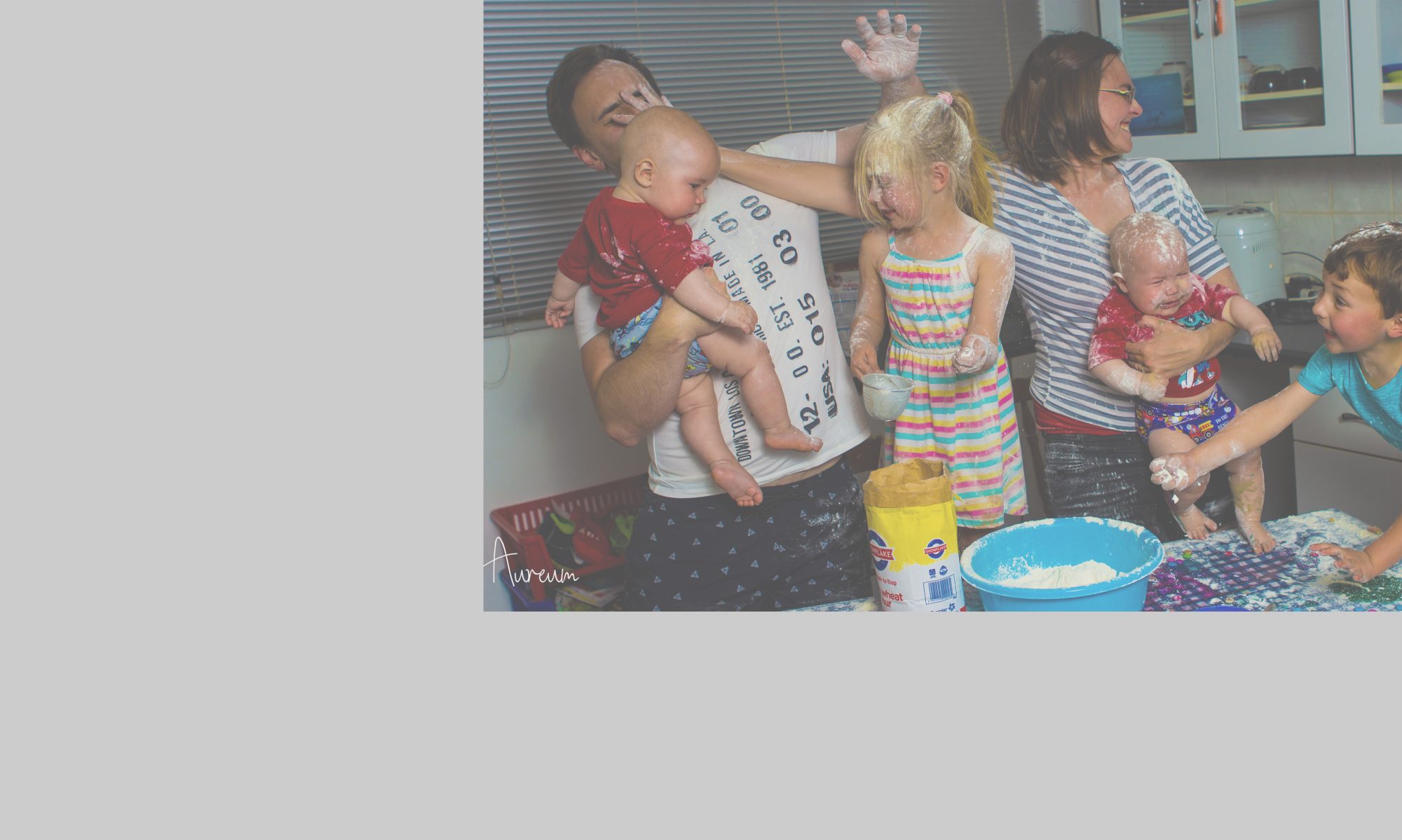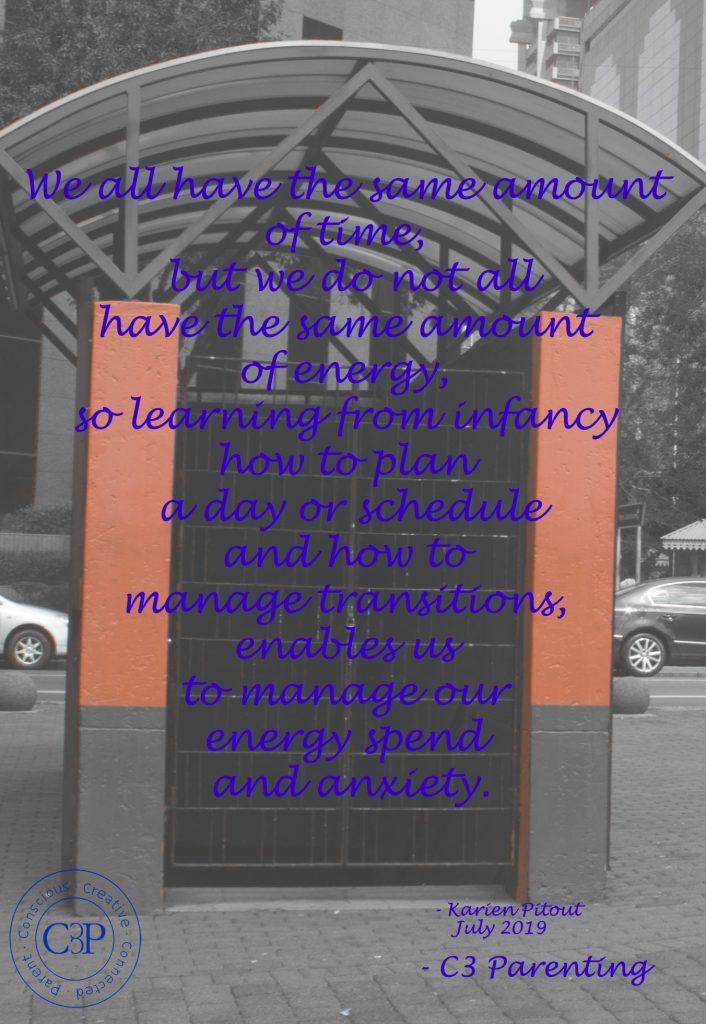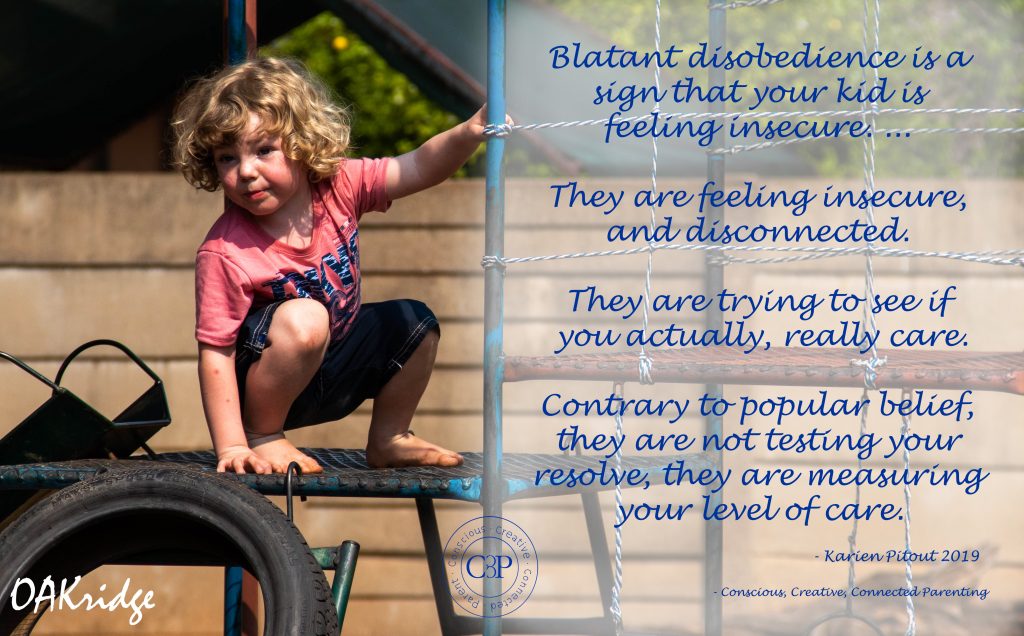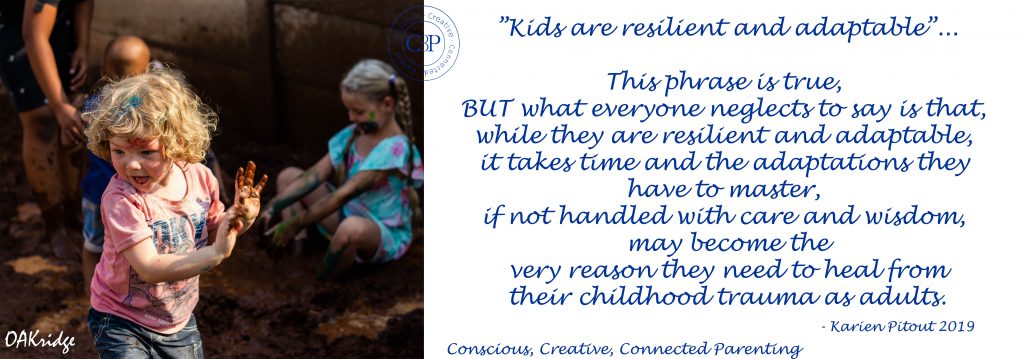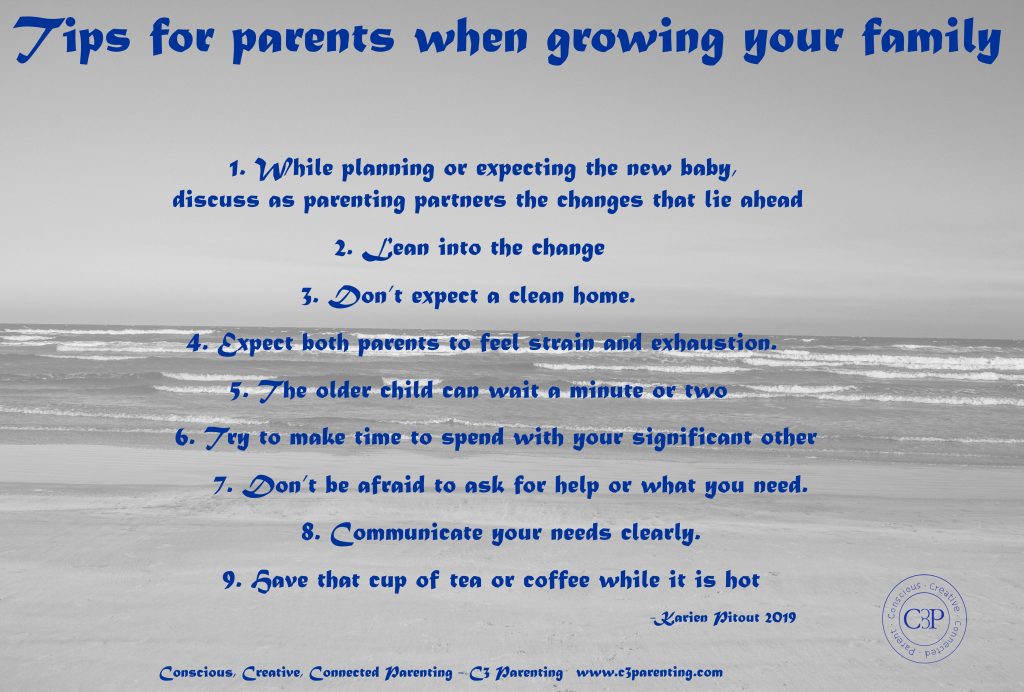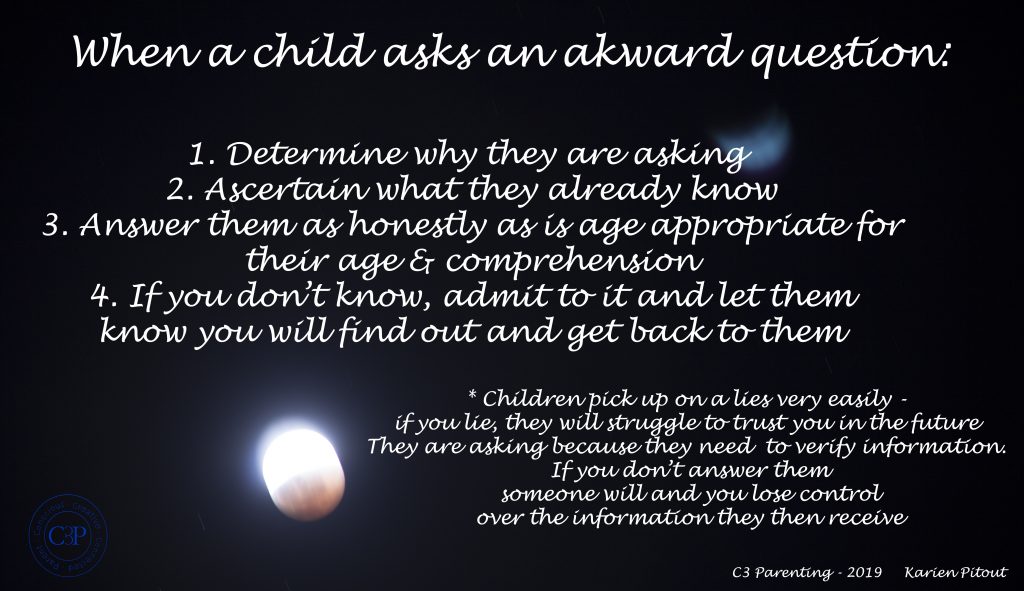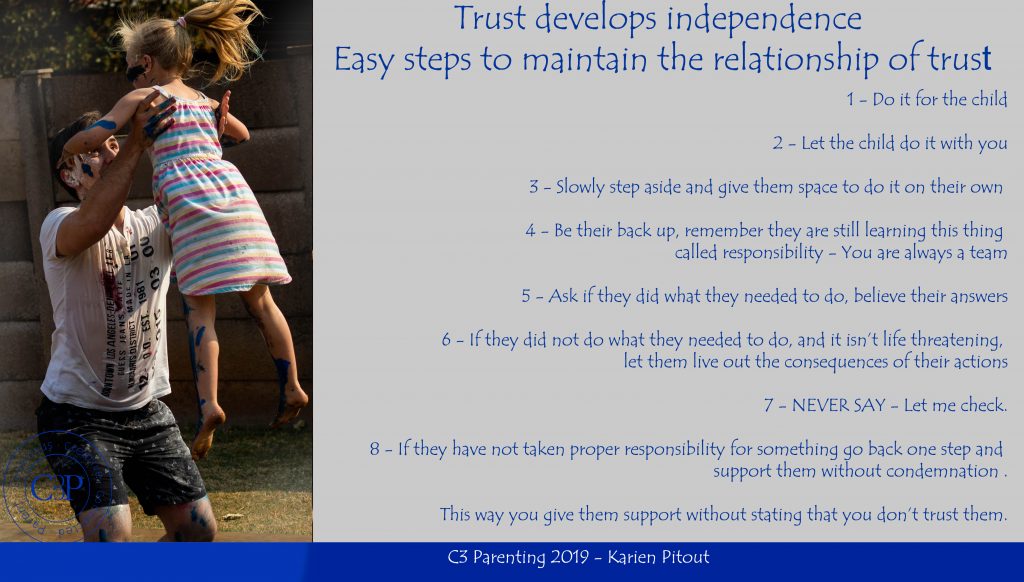From birth it is important to allow our children periods of transitioning. Transitioning in this context is moving from one thing to the next. We as adults do it daily and usually fairly smoothly. We move from one activity to the next with very little thought as we power through our day. Infants and children are still learning how to do this. Very few people actually talk about this or even think about this as a skill to be acquired. However, just like learning to walk and talk, our kids need to learn how to transition from one activity to the next without experiencing anxiety.
There are certain personality types who are slow to transition and others who love the pace of fast transitions, however even though there are personality traits involved, the skill of how to manage, prepare for and embrace transition is still a skill to learn. When parents engage it as a skill to be taught, it creates the opportunity for the person who is slow to transition to experience less angst whilst going through a transition and it teaches the fast transitioning person to slow down a bit and think before moving over to the next thing or activity.
Why is this skill so important? Everyday tasks and life in general, is filled with transitions, there are minor transitions like waking up and getting out of bed and major transitions, like changing one’s career path. Teaching our children how to manage this will enable them to find their rhythm in life and also ease the adjustment period for major transitions in life.
So how do we teach them to manage transitions?
- Communication is the key: Talk through the changes with them. I.e. it is morning now, we are getting up and out of bed. Then we will change into our daytime clothes. Literally step by step verbal cues. There will come a time where you won’t have to be so focused on detail, but in infancy and toddlerhood, it is best to focus on the details of every transition and preparation for the next step. Knowing what comes next allows us to better manage life in general.
- Inform them what the “daily plan” is. Initially just focus on the major highlights, up to the first nap/sleep period. For example, we are getting up and will complete our morning routine, then we will have breakfast and we will play outside. After we have played outside, it will be time for your nap. Obviously as they get older, they will drop their naps, so what is planned for the awake period will have more information. Do not expect your child under the age of 4/5 to remember every step or detail. The aim is to help you plan your day and for them to have some idea of what to expect for the day ahead.
- Allow for time to transition between activities. This is such an important aspect of transitioning. In this space there is room for the slow and fast to complete their task or activity and then move to get their minds ready to focus on the next thing. Making use of timers can be helpful. Give a warning that the transition is coming and how much time they have left to focus on the task at hand. Remember you don’t want them to transition immediately, but only when the allocated time to prepare for the transition has been completed. Think of how it affects you when someone interrupts you and expects an immediate reaction. It gets mentally and emotionally exhausting to make the transitions so quickly and it increases our frustration levels. Knowing that you have a transition preparation period, also helps us as parents to plan ahead and rush less. It will help you as a parent to remain connected and present, but it will also teach children the concept of the need to wait for us to complete a task before we can engage with them.
- Remember that what kids are doing is not any less important because they are children. So many times adults tend to only focus on what is important to them and we dictate the flow of the day. We plan our days around our own needs and responsibilities and our kids just have to tag along and do as they are told. This is very problematic at its core. The moment kids feel like life is happening to them and who they are and what they do does not rank on the list of priorities, they will start pushing back. They will start acting out, because they feel invisible and disconnected. They also have priorities and plans for the day, so respecting what they are busy with is important.
- Plan the day with your kids: Not all people like to plan, they prefer to take the day as it comes, however, there are some things that must be done during the day and can be fit into a day plan or routine. Eating is one of these, going to the shops or school is another. These are big disruptive transitions that has an impact on our kids. So find a space in the morning routine where you and your child can have a discussion of what has to happen during that day and plan it together.
- Prepare your kids for big events or transitions. If there is something like a big event/ holiday/moving or even a parent going away for work or holiday, it is important to discuss this with the kids beforehand. Here, having a calendar they can mark down works wonders. It creates a continuous conversation and space for you to check in with yourself and them about the coming change. It will also help your child prepare as much as they can for the transition. For the slow to adjust kids, when moving or going away on holiday, it really helps to have pictures of where you are going to. It helps them envision what to expect on a basic level.
Not all situations have space for transitioning periods, now what?
Life happens, so it will not always be possible to give transitioning periods before hand, however this should be the exception to the rule. The reason parents may believe that this is more the rule than not, is because we as parents get so wrapped up in the day to day life and ourselves that we forget things, and that places us in a rush or hurry and then we rush our children. So make use of timers for yourself as an adult as well. This may seem excessive, however having alarms set on your mobile device, enables you as a parent to have a less rushed transition yourself. In our home the alarms or timers are usually set to go off 5 min before we actually have to transition. That way we as parents can give the kids a heads up for the coming transition and they have 5 min to ready themselves. Since we have implemented this, our life is less stressed, and we are less flustered when we need to leave or go somewhere.
When there is an emergency and we need to leave immediately or stop an activity immediately, the kids are more likely to comply as they can sense the urgency in our behaviour and they know that this is not the norm. So they are more likely to absorb and manage the transition with ease.
One of the most practical skills, besides learning how to manage transitions, that grows from this process, is the ability to plan the abstract of a day. This skill will also be able to permeate into school and work life. We all have the same amount of time, but we do not all have the same amount of energy, so learning from infancy how to plan a day or schedule and how to manage transitions, enables us to manage our energy spend and anxiety.
In course 1 – We look at how we do life with our children in deeper detail. Click here for more information and dates on when the next course will be presented. Follow us on Facebook for great videos and other information regarding parenting.
6,027 total views, 1 views today
